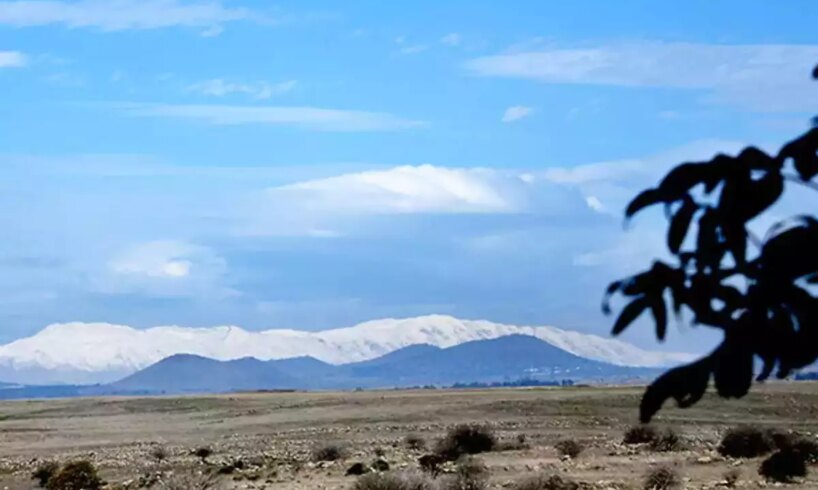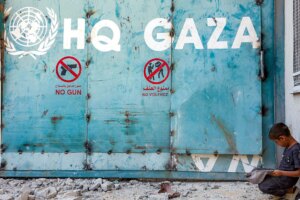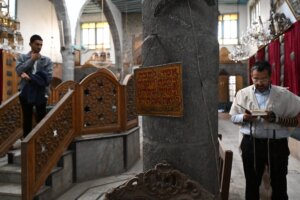
Syria, backed by Turkey and several Arab countries, has launched a diplomatic campaign to gain international recognition of its sovereignty over the Golan Heights and to return the territory to its control. The move runs counter to ongoing security negotiations between Syria and Israel.
Israel annexed the Golan Heights by law in 1981 and considers it fully sovereign Israeli territory. That sovereignty was recognized by President Donald Trump during his first term, through a 2019 presidential proclamation. As a gesture of appreciation, the Israeli government announced the establishment of the community Trump Heights.
Druze in Syria. Photo: EPA
The current campaign was initiated by Syria’s envoy to the United Nations, Ibrahim Olabi, in an aggressive speech to the UN Security Council on Friday. Olabi accused Israel of instigating military incidents, violating the post-Yom Kippur War disengagement agreement, and infringing on Syria’s sovereignty. He called on the UN and the Security Council to take “decisive” action against Israeli operations on Syrian territory.
Olabi went further, declaring that “Israeli authorities must withdraw their forces from Syrian territory, including the occupied Golan Heights, as well as from areas recently invaded, and refrain from interfering in Syria’s internal affairs. The Golan will remain Arab and Syrian and will never be subject to compromise or concession. Syria reaffirms its unwavering position that the occupied Golan Heights is an integral part of its sovereign territory, a position rooted in international law and repeatedly endorsed in UN resolutions.”
Four Security Council members—Algeria, Somalia, Sierra Leone and Guyana—joined the Syrian demand, submitting a letter to the council that stated: “The occupation of the Syrian Golan, along with the security challenges stemming from the military’s illegal presence in these areas, poses a significant threat to Syria’s stability and complicates efforts to rebuild the state.”
Militias in Syria. Photo: AFP
The letter was presented by Algeria’s permanent representative to the UN, Ammar Benjama, who added: “We reaffirm that the occupied Syrian Golan is an inseparable part of Syria, as established in Security Council Resolution 497. We call for an immediate end to the [Zionist] aggression and a full withdrawal from all Syrian territory, including the occupied Syrian Golan.”
Former MK Zvi Hauser, chairman of the “Coalition for the Israeli Golan”, warned that Israel was effectively granting legitimacy to the stabilization of a new Syrian regime that openly demands sovereignty over the Golan Heights by failing to condition its reconstruction on the regime’s renunciation of such claims or, at the very least, by not pressing the Americans to intervene.
Hauser said Israel was displaying “historic negligence” that could soon enable the formation of international pressure to withdraw from the Golan Heights. Ignoring the issue, he warned, would carry serious strategic consequences in the future.
The border area with Syria. Photo: Oren Cohen
An Arab diplomatic source familiar with the matter said the Syrian initiative is backed by Turkey, the main sponsor of Syrian President al-Sharaa, as part of its quiet confrontation with Israel over influence in Syria. Israel, the source noted, supports the Druze population directly and the Kurds partially, both groups opposed to the regime, while Turkey supports the Sunni Islamist government.
An Israeli official stressed that Israel has no intention of conceding “even one centimeter of the Golan Heights,” nor of reducing its military presence in Syrian territory so long as it is necessary for Israel’s security. Another diplomatic source suggested that Syria’s campaign is meant to accelerate the sluggish security negotiations with Israel, which have yet to yield results.





